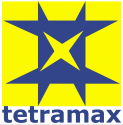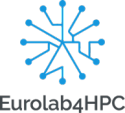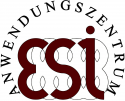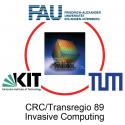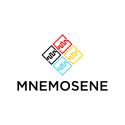1.1 Opening Session: Plenary, Awards Ceremony & Keynote Addresses
Date: Tuesday, March 26, 2019
Time: 08:30 - 10:30
Location / Room: Palazzo dei Congressi
Chair:
Jürgen Teich, DATE 2019 General Chair, Friedrich-Alexander-Universität Erlangen-Nürnberg, DE, Contact Jürgen Teich, Edit Profile, Edit Account
Co-Chair:
Franco Fummi, DATE 2019 Programme Chair, Universita' di Verona, IT, Contact Franco Fummi, Edit Profile, Edit Account
| Time | Label | Presentation Title Authors |
|---|---|---|
| 08:30 | 1.1.1 | WELCOME ADDRESSES Speakers: Jürgen Teich1 and Franco Fummi2 1Friedrich-Alexander-Universität Erlangen-Nürnberg, DE; 2Universita' di Verona, IT |
| 08:45 | 1.1.2 | PRESENTATION OF AWARDS |
| 09:15 | 1.1.3 |
Keynote: Working with Safe, Deterministic and Secure Intelligence from Cloud to Edge Speaker: Astrid Elbe, Managing Director Intel Labs Europe, Intel, DE
The Internet of Things (IoT) will be the largest revolution in the data economy. At Intel, we understand the exponential power of data, and we’re making it practical and economical to put it to work from the edge to the cloud. Intel® technologies purpose-built for IoT deliver optimized performance at every point, practical ways to use artificial intelligence, broad connectivity support, and a built-in foundation of functional safety, time determinism and security to help protect and make dependable your data and systems. By harnessing the massive flood of data generated by connected things—and using it to gain actionable insights—we’ll accelerate business transformation to a degree never seen before. Managing services and infrastructure at the edge is a complex balancing act that has to meet much more demanding timing and dependability constraints and requires vastly more speed and precision than in a conventional cloud data center. Satisfying the competing objectives of stringent Quality of Service (QoS) and workload consolidation in this complex IoT environment requires new approaches and advancements. Virtualization alone does not deliver the full potential for this IoT transformation. E.g. for challenging industrial workloads an automatic and self-managing approach will be needed. Read more ... Bio: Dr. Astrid Elbe is Managing Director of Intel Labs Europe leading Intel’s research efforts in Europe as an essential group driving Intel strategy and hence company transformation. The organization is focused on Edge Computing Research with a particular emphasis on Dependable Cyber Physical Systems. Astrid brings >20 years of experience in semiconductor industry in various R&D and Engineering Management roles at Infineon Technologies Security and Wireless Business Group and within Intel Product Divisions. She studied Physics and Mathematics as well as Technology and Innovation Management. Astrid holds a PhD in Surface Physics and has more than 20 patents in areas including cryptography and microarchitecture. |
| 1.1.4 |
KEYNOTE: Assisted and Automated Driving
Although the common discussion focuses on the higher levels of automation from SAE Level 3 to Level 4, at least for the next decade Level 1 and 2 systems will play a significant role being the technological state-of-the-art for a majority of cars. Therefore, PORSCHE focuses on increasing the performance and functionality of Level1/2 driver assistance system in parallel to participating in development programs to enable Level3/4 automated driving. This offers the opportunity to systematically build the necessary competency both in the technological fields of sensing, sensor fusion, planning and control as well as the necessary processes, methods and tools that are mandatory to develop, approve and release higher level automated systems. Systems Engineering has to be combined with approaches to process very large amounts of data whereas traditional random road based testing has to be replaced by a combination of virtual and systematic real world testing. Last but not least, a new end-to-end EE architecture is necessary to provide the seamless integration of the vehicle into an IT based service infrastructure. Read more ... The keynote will address the following topics:
Bio: Jürgen Bortolazzi serves as head of engineering for advanced driver assistance and automated driving at Porsche. During his 25 year industrial career, Mr. Bortolazzi had several leading positions at Porsche and Mercedes Benz Cars focusing on E/E Architecture, electronic safety and driver assistance systems as well as intelligent lighting. He has initiated and managed several vehicle industry wide activities such as the OSEK/VDX and AUTOSAR software architecture, the FlexRay vehicle communication system, model based E/E Architecture Development as well as intelligent LED lighting systems. |
|
| 10:30 | End of session Coffee Break in Exhibition Area
On all conference days (Tuesday to Thursday), coffee and tea will be served during the coffee breaks at the below-mentioned times in the exhibition area. Lunch Breaks (Lunch Area)On all conference days (Tuesday to Thursday), a seated lunch (lunch buffet) will be offered in the Lunch Area to fully registered conference delegates only. There will be badge control at the entrance to the lunch break area. Tuesday, March 26, 2019
Wednesday, March 27, 2019
Thursday, March 28, 2019
|

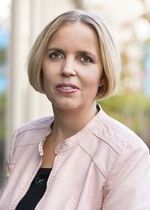 Abstract:
Abstract: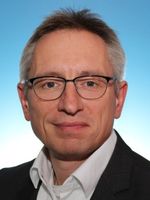 Abstract: Since the introduction of Park Distance Control and Adaptive Cruise Control in the Mid 2000s, PORSCHE follows a systematic strategy to adapt driver assistance and automated driving to their product lines. There is no contradiction to the philosophy of a sports car: customers that enjoy driving on their own in case of appropriate traffic conditions expect significant ease of driving in stressful, time-consuming situations like traffic jams, or heavily occupied parking spaces. Furthermore, new functionalities like the predictive Innodrive system enabling efficient cruise control based on sophisticated planning algorithms provides a perfect contribution to the PORSCHE Intelligent Performance strategy.
Abstract: Since the introduction of Park Distance Control and Adaptive Cruise Control in the Mid 2000s, PORSCHE follows a systematic strategy to adapt driver assistance and automated driving to their product lines. There is no contradiction to the philosophy of a sports car: customers that enjoy driving on their own in case of appropriate traffic conditions expect significant ease of driving in stressful, time-consuming situations like traffic jams, or heavily occupied parking spaces. Furthermore, new functionalities like the predictive Innodrive system enabling efficient cruise control based on sophisticated planning algorithms provides a perfect contribution to the PORSCHE Intelligent Performance strategy.



